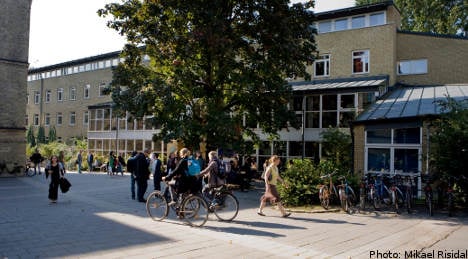Criticism has mounted in both Sweden and Denmark during the summer over the new admissions system introduced in time for the autumn term 2010.
The criticism has partly concerned the fact that applicants with foreign qualifications end up in their own quota group which is at times so small that few, or even none, get accepted, despite sound merits.
According to the new regulations places are allocated to a percentage of applicants in each group, resulting in a small risk of the foreign group not securing any places.
According to Lund University the system could be in breach of requirements to offer a fair and equal treatment to all and, in respect of Sweden’s EU commitments, has now introduced its own admissions system for students with foreign grades.
In practice the decision means that applications will be handled on a case by case basis in the incidence of no one being admitted from the specific quota group.
“I think we have found a sound solution. I hope that more follow our example,” said Per Eriksson, Lund University head, to news agency TT.
Despite the fact that there are few people affected it is important that they can compete based on their grades and not as a group on a quota basis, he said.
“Even if there aren’t that many it means a lot for the individual student. We do not want to reduce the number of foreign students, we want to increase it. We have a very mathematical system, international it is very often a straight grades comparison,” said Per Eriksson.
According to a university press release the issue concerns the review of around 120 of the total 1,100 courses that can be applied for, with an expected 75 students admitted in this way.
The Local reported in July that the Higher Education and Research Minister Tobias Krantz had indicated that the new admissions rules will be subject to a national review following criticism.
“We have to be honest and say that we could not foresee all of the consequences. We will appoint a new commission to go through this properly,” Krantz said while stating that “the core of the reform will remain the same”.



 Please whitelist us to continue reading.
Please whitelist us to continue reading.
Member comments